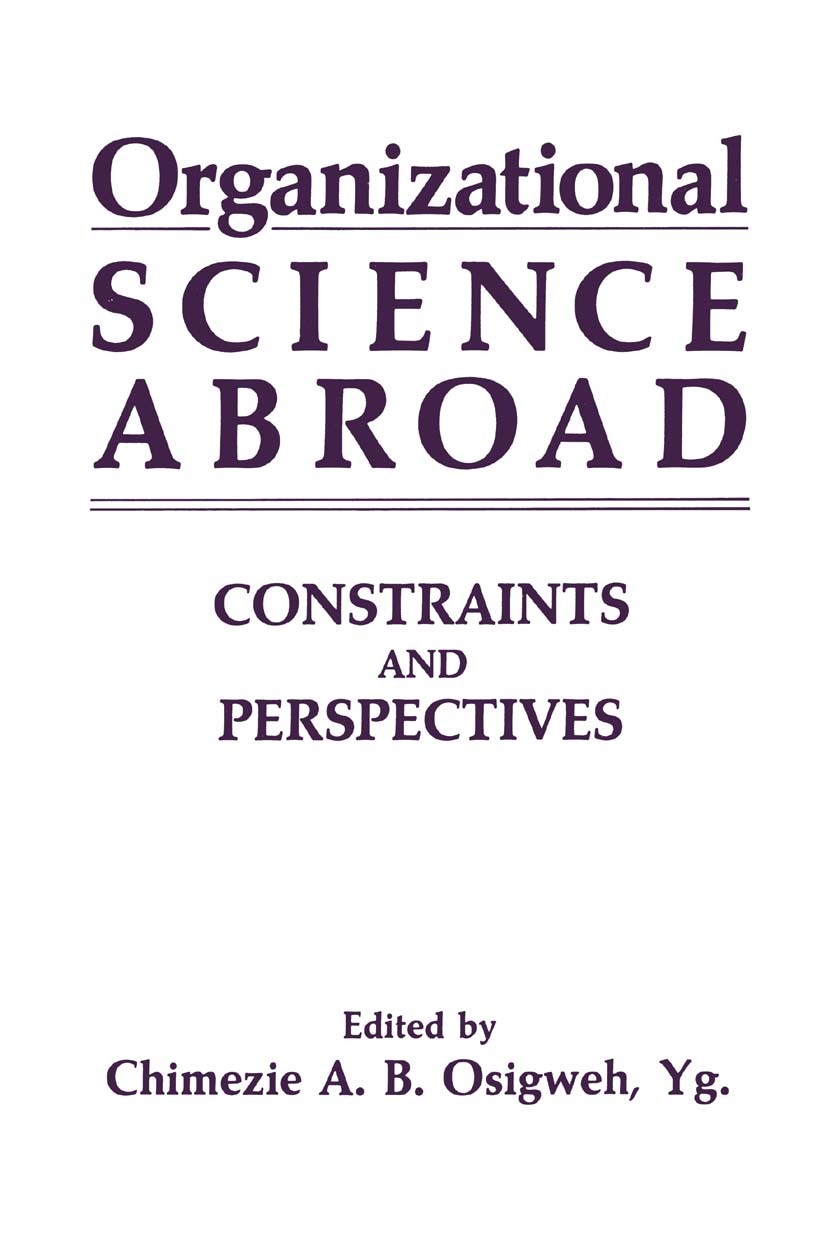| 書(shū)目名稱 | Organizational Science Abroad | | 副標(biāo)題 | Constraints and Pers | | 編輯 | Chimezie A. B. Osigweh | | 視頻video | http://file.papertrans.cn/705/704413/704413.mp4 | | 圖書(shū)封面 |  | | 描述 | Organizing consists of making other people work. We do this by manip- ulating symbols: words, exhortations, memos, charts, signs of status. We expect these symbols to have the desired effects on the people con- cerned. The success of our organizing activities depends on whether the others do attach to our symbols the meanings we expect them to. Whether or not they do so is a function of what I have sometimes called "the programs in their minds" -their learned ways of thinking, feeling, and reacting-in short, a function of their culture. The assumption that organizations could be culture-free is naive and myopic; it is based on a misunderstanding of the very act of organizing. Certainly, few people who have ever worked abroad will make this assumption. The dependence of organizations on their people‘s mental pro- grams does not mean, of course, that we do not find many similarities across organizations. Some characteristics of human mental program- ming are universal; others are shared by most people in a continent, a country, a region, an industry, a scientific discipline, or even a gender. | | 出版日期 | Book 1989 | | 關(guān)鍵詞 | Nation; Transnational; environment; gender; management; merger; organization | | 版次 | 1 | | doi | https://doi.org/10.1007/978-1-4899-0912-1 | | isbn_softcover | 978-1-4899-0914-5 | | isbn_ebook | 978-1-4899-0912-1 | | copyright | Springer Science+Business Media New York 1989 |
The information of publication is updating

|
|
 |Archiver|手機(jī)版|小黑屋|
派博傳思國(guó)際
( 京公網(wǎng)安備110108008328)
GMT+8, 2025-10-8 03:25
|Archiver|手機(jī)版|小黑屋|
派博傳思國(guó)際
( 京公網(wǎng)安備110108008328)
GMT+8, 2025-10-8 03:25


